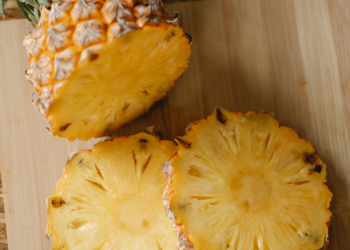The growing awareness of the food impact on health and well-being has led many people to explore alternative diets. One option that has received significant attention is the plant-based diet. This diet emphasizes fruits, vegetables, grains, and legumes while minimizing or eliminating animal products. In this article, we’ll delve into the essentials of a plant-based diet for beginners, examine the pros and cons of a plant-based diet, suggest some tasty plant-based diet snacks, and explore how this dietary approach can be beneficial for those with PCOS (Polycystic Ovary Syndrome).
Plant-Based Diet for Beginners
A plant-based diet can encompass a variety of approaches, including veganism, vegetarianism, and flexitarianism. However, the common thread focuses on whole, nutrient-dense foods derived from plants.
Basic Principles
- Whole Foods: The emphasis is on unprocessed or minimally processed foods.
- No Animal Products: While some variations allow for limited animal products, the idea is to focus primarily on plant-derived foods.
Transition Steps
- Start Small: Begin by incorporating more fruits and vegetables into your meals.
- Meal Planning: Plan your meals around plant-based protein sources like lentils, chickpeas, and tofu.
- Read Labels: Make sure to read food labels to avoid hidden animal-derived ingredients.
Pros and Cons of a Plant-Based Diet
Switching to a plant-based diet has a lot of benefits, but it’s important to also think about some of the challenges you might face. Let’s look at the pros and cons of choosing this way of eating.
Pros
- Health Benefits: One of the top reasons people switch to a plant-based diet is for the health perks. For instance, eating high portions of fruits, veggies, and whole grains has been shown to lower your chance of developing heart problems. It can also help you maintain a normal and healthy weight.
- Environmental Impact: If you care about planet Earth, then a plant-based diet is a step in the right direction. The reason is simple: growing plants takes much less resources than raising animals for food. Going plant-based means cutting down on the water and energy that would otherwise be used to produce meat. You’re also producing less carbon dioxide, which is good for fighting climate change. In short, a plant-based diet is a more eco-friendly choice.
- Ethical Considerations: Many people don’t like the idea of animals being harmed for food. If you’re one of them, then a plant-based diet aligns well with your values. By not eating meat or animal products, you’re playing a part in reducing animal suffering. That’s a win for animal lovers.
Cons
- Nutritional Deficiencies: While a plant-based diet can be very healthy if you’re not careful, you might miss out on important nutrients. For example, it’s harder to get enough Vitamin B12, which is found in animal products naturally. A lack of B12 can make you feel tired and weak. Similarly, iron, which is important for healthy blood, is another nutrient you must pay extra attention to. So, you must plan your meals well and take supplements to fill any gaps.
- Social and Cultural Challenges: Let’s face it: Only some understand or appreciate a plant-based diet. You might need help to eat out at restaurants or attend family gatherings where plant-based options are scarce. It can sometimes feel isolating, especially during social events centred around food. People might also ask you lots of questions or make comments that can be annoying or hard to respond to.
- Cost: While fruits and veggies aren’t necessarily expensive, some plant-based options can be. For instance, special items like plant-based cheeses or meat substitutes can increase your grocery bill. That said, it’s possible to keep costs down by sticking to basic foods like beans, rice, and seasonal produce.
Read Also: DASH Diet Chart
Plant-Based Diet Snacks
The right snacks can make or break any diet. In a plant-based diet, it’s essential to choose snacks that are tasty and nutritious.
Easy Snacks
- Sliced fruits or veggies
- Nuts and seeds
- Plant-based yoghurt
Creative Snacks
- Homemade vegetable chips
- Smoothie bowls with a variety of fruits and plant-based toppings
- Protein powder mug cake
Plant-Based Diet for PCOS
Life can be tough When dealing with PCOS, which stands for Polycystic Ovary Syndrome. PCOS is a condition that affects people with ovaries and can cause a lot of issues like irregular periods, weight gain, and even fertility problems. But did you know that what you eat can play a big role in how you feel when you have PCOS? That’s where a plant-based diet comes into the picture.
Benefits for PCOS
- Improved Insulin Sensitivity: One common issue with PCOS is that your body doesn’t use insulin well. Insulin is what helps your body turn sugar from food into energy. When your body is not good at using insulin, this health condition is known as ‘insulin resistance,’ and it can lead to problems like weight gain and other serious health problems. Taking a diet rich in veggies, fruits, and whole grains can improve your body’s insulin use. In simpler terms, a plant-based diet can make it easier for your body to handle sugar, which is great news for people with PCOS.
- Better Weight Management: Another challenge people with PCOS often face is maintaining a healthy weight. Plant-based foods are low in fat and calories and are high in fibre, which helps you feel full for longer. So, eating more plant-based foods can help you manage your weight, which is good for your looks and improves symptoms of PCOS.
- Reduced Inflammation: Have you ever felt sore or swollen for no real reason? That’s what doctors call ‘inflammation,’ and it’s often more common in people with PCOS. Luckily, plant-based foods are known for their anti-inflammatory properties. Foods like whole grain, green leafy vegetables, berries, and nuts can help fight off this inflammation, making you feel a lot better.
How to Start a Plant-Based Diet When You Have PCOS
- Consult a Healthcare Provider: Before making any big changes to what you eat, talking to a healthcare provider is a good idea. They can give you more personalized advice and help you ensure you get all the nutrients you need.
- Plan Your Meals: Make a weekly menu that includes a variety of vegetables, fruits, legumes, and whole grains. The more colourful your plate, the better.
- Watch Portion Sizes: It’s not just what you eat but also the portion you eat that matters. Because sometimes healthy foods can contribute to weight gain if you eat them in large quantities.
- Do Exercise: While your diet is crucial, remember that exercise is also essential for managing PCOS symptoms. Try to do at least 15 to 30 minutes of moderate exercise most days of the week.
Conclusion
A plant-based diet offers many benefits, from enhanced health to environmental sustainability. Whether you are a beginner, looking for snack ideas, or dealing with PCOS, a plant-based solution will likely suit your needs. However, it’s essential to be mindful of potential pitfalls like nutritional deficiencies and consult a healthcare provider for personalized advice.






